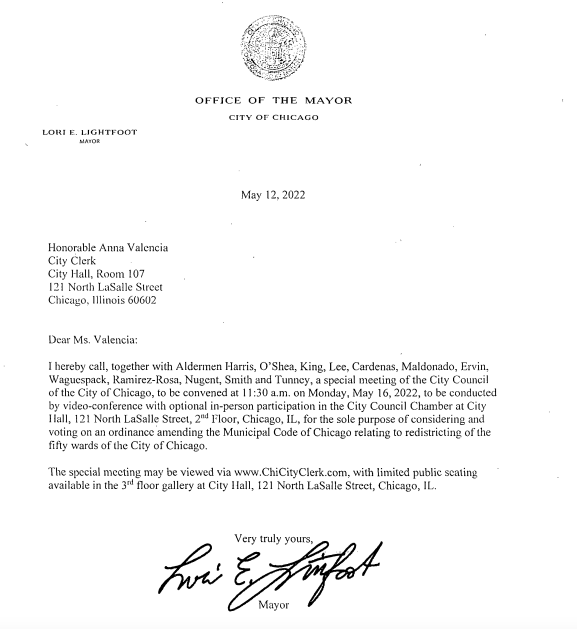Two weeks before former Epic Charter Schools founders Ben Harris and David Chaney were arrested and charged with racketeering, conspiracy, embezzlement and other crimes, both men donated $375,000 on June 8 to a federal political action committee called Protect Our Freedoms, which was formed 10. months earlier but had not received a single donation up to that point.
Within nine days, that Super PAC distributed $581,000 to two other Super PACs: $300,000 to a national committee called American Values First, and $281,000 to Truth PAC, an Oklahoma committee. Both committees are run by Campaign Advocacy Management Professionals (CAMP), a leading campaign firm founded by Fount Holland, a former newspaper reporter who became arguably the top Republican political consultant in Oklahoma by mastering the art of both candidate campaigns and independent spending efforts.
Before the conclusion of Oklahoma’s June 28 primary, the two PACs orchestrated by CAMP and funded by Harris and Chaney spent hundreds of thousands of dollars in opposition to State Auditor & Superintendent Cindy Byrd, who completed the damning audit of Epic Charter Schools that eventually led to the prosecution of Harris and Chaney.
Hundreds of thousands of dollars were also spent in support of Byrd’s opponent, Steve McQuillen, who did not campaign himself. Despite more than $500,000 of Harris and Chaney’s money being used to attack Byrd and support McQuillen, Byrd won re-election with more than 70 percent of the vote.
Holland said he remembers talking to Harris about the independent spending, but he said he doesn’t remember what Harris said motivated his PAC donations.
“I don’t really remember what the intent was,” Holland said. “We don’t ask people. They ask us to run – to be a seller. We oblige in many cases, sometimes we don’t.”
Holland said “people are innocent until proven guilty,” and he noted that a previous multi-county grand jury had investigated Harris and Chaney without returning charges.
“You assume the best of people. Yes. I believed it was private funding. I believe it was their personal money and, again, I don’t know. I can’t remember all the details,” Holland said. “I make a rule, I don’t deal with public money. I’ve done as much as possible to stay away from that, so that’s something I asked before I agreed to do the job. “
CAMP CEO Matthew Parker said he was told Harris and Chaney’s motivation was to “beat Cindy Byrd.”
“I’m not ashamed of the work we did there,” Parker said.
‘You follow the dots, it’s a direct line’
Harris and Chaney’s recent independent spending contributions aimed at revenge against Byrd underscore the political influence Epic’s controversial founders have tried to sow by donating heavily to state and federal campaigns for years, even as they were under criminal investigation for allegedly embezzling money through Epic Youth Services, the private charter management company they co-owned.
“You follow the dots, and it’s a straight line,” former State Auditor & Inspector Gary Jones said during a June 24 press conference about the dark money. “Now we know for sure (…) that it is not individuals who give money. Read also : Judge says 10-year-old girl can join softball team due to ban on transgender sports. It’s our own tax dollars.”
Jones filed a formal complaint with the Oklahoma Ethics Commission about Harris, Chaney, Holland and others, but the cascade of political donations from Harris and Chaney began long before this year’s election cycle.
For state-level candidates and committees between 2015 and 2021, Harris made approximately $104,296 in political contributions. During the same time, Chaney made about $101,800 in contributions to state campaigns, according to information on the Oklahoma Ethics Commission’s website. Josh Brock, Epic’s former chief financial officer, who was indicted along with Harris and Chaney, donated $13,700 to state candidates.
In the June arrest affidavit for Harris, Chaney and Brock, Oklahoma State Bureau of Investigation special agent Mark Drummond outlined many of the gifts and payments the trio made to Oklahoma politicians and power brokers, raising questions about the extent of the three men’s influence in politics and policy in the state.
“Chaney, Harris, Brock and others [Epic Youth Services/Epic related parties] made numerous political donations, some of which were paid for with Chaney’s AMEX card,” Drummond wrote in the affidavit. “As previously noted, Chaney’s card was partially paid for by the ‘Student Learning Fund’.”
‘This is so much bigger than two men and a charter school’
During a news conference held by Byrd on June 23, the afternoon of the arrests, she outlined vendors with ties to Harris and Chaney who received payments for services unrelated to school operations. On the same subject : Netflix’s Beauty captures a singer who is on the verge of success.
Byrd also discussed how Student Learning Fund money was used for personal expenses, as well as Student Learning Fund credit card charges linked to efforts to discredit her investigative audit released in October 2020. (The audit revealed that Epic owes the state .millions of dollars related to excessive administrative costs and the commingling of public funds with Epic California, a separate entity launched by Harris and Chaney in 2016.)
“Chaney used the student Learning Fund credit card to make a $100,000 donation to [the Oklahoma Council of Public Affairs] during the time frame of the publication of the audit,” Byrd said during the press conference. “This is much bigger than two men and a charter school. Harris and Chaney used funds intended for student education to control and manipulate elections and public policy in this state.”
Epic charges: Ben Harris, David Chaney, Josh Brock arrested for ‘complicated criminal enterprise’ by Tres Savage and Megan Prather
However, some lawmakers said the influence Chaney, Harris and Brock likely had was blown out of proportion.
“I think it’s very overblown,” said Senate President Pro Tempore Greg Treat (R-OKC). “They weren’t nearly as involved as the story seems to be, or at least from my perspective. To the extent that parents can have control over their children’s education, that’s something that I obviously believe in deeply, and a lot of parents in my district took advantage of the opportunity that Epic provided, as well as other alternatives.”
Treat, who was first elected to the state Legislature in 2011 and authored the controversial Oklahoma Empowerment Act this legislative session, said he believes he received a check from Chaney in 2016 because Epic’s headquarters resides in his Senate District. According to the Oklahoma Ethics Commission website, Treat received a $2,700 donation from Chaney in October 2016.
Treat said they had a good meeting about his belief in giving parents control over their children’s education. Speaking on July 10, Treat said he had not read the arrest affidavit, which is embedded below.
“I believe that if people have defrauded the state or done something illegal, they should be held accountable to the fullest extent of the law,” Treat said.
Oklahoma County District Attorney David Prater charged Harris, Chaney and Brock with 11 felony counts, including racketeering, conspiracy to commit a felony, six counts of embezzlement of state funds, obtaining money by false pretenses, violating the Oklahoma Computer Crimes Act and submitting untruth documents to the state.
Harris and Chaney were released from Oklahoma County Jail hours after their arrest on $250,000 bonds. According to OSCN, Harris’ bond was paid for by Bobby Stem, an Epic Charter Schools board member from 2010 to about 2014 who also served as the longtime lobbyist for Epic Youth Services, a private company co-owned by Harris and Chaney that received millions of dollars. to manage the charter schools.
‘Nothing to see here’
The affidavit states that between 2014 and 2020, numerous statewide elected officials and legislators received campaign contributions from Harris, Chaney and Brock. See the article : 2022 MLB Draft follower: results, analysis, complete list of all draft options with 10 rounds.
Those who received money from the trio included a wide range of influential politicians:
Between 2015 and 2021, Harris made about $104,296 in political contributions, and Chaney made about $101,800 in contributions, according to information on the Oklahoma Ethics Commission’s website. Brock made approximately $8,100 in contributions to State Superintendent of Public Instruction Joy Hofmeister’s 2018 re-election campaign and $5,600 in donations to Rep. Preston Stinson’s 2020 election campaign.
Stinson (R-Edmond) already had a personal connection to Harris, Chaney and Epic. In an interview with NonDoc, Stinson said he was asked by Harris in 2016 to serve on the governing board for Epic California.
“I said ‘sure,’ and at that point there were already investigations and whatnot going on,” Stinson said. “I asked him, ‘Just shoot me straight here, is there anything unusual going on?’ Because if there is, I can’t be involved in that.”
Stinson said Harris assured him there was nothing “sketchy” going on with the Epic California effort and that McAffee & Taft, along with other law firms, assisted in setting things up. Stinson served on the Epic California board for three years, during which he reviewed a number of contracts with Epic California and Panola Public Schools, a school district in rural southeast Oklahoma to which Epic tried to bring their blended learning model in 2017. (Panola ended its relationship with Epic in 2020.)
“It was a voluntary agreement,” Stinson said. “I never got a nickel of compensation for it.”
However, Stinson’s trajectory changed in April 2020 when someone contacted him and suggested that he run for an Oklahoma House of Representatives seat vacated by term-limited Rep. Lewis Moore (R-Arcadia). Stinson said after he decided he would run, he contacted Harris to ask if he would support the campaign and let Harris know he would be resigning from the Epic California board.
“I got campaign contributions from Ben, I got campaign contributions from David, and I got campaign contributions from Josh,” Stinson said. “I can tell you that they made campaign contributions, I think, because they thought I was an intelligent and capable person. There was never any suggestion that I would do anything in their favor.”
Stinson ended up absent for much of the 2021 legislative session for health reasons. He said his communication with Harris was extremely limited during his first session, but when Rep. Sheila Dills (R-Tulsa) pushed a charter school reform bill during the last week of session, Stinson said he called Harris to get a better understanding. of the proposed policy in HB 2966.
“He went into some detail and explained to me this bit and that bit and whatever,” Stinson said. “He sort of shrugged his shoulders and said, ‘You know, it’s probably not something I would support, but it’s not that big of a deal one way or the other to me.’
Stinson ended up being only one of 17 House members who voted against HB 2966, which proposed requirements and procedures for program and financial audits, policies that would require charter schools to be subject to the same academic standards as Oklahoma’s traditional public schools, and demand. promptly notify a charter sponsor of any significant adverse actions, material findings of noncompliance, pending actions, claims or proceedings relating to a charter school or educational management company.
Of the 17 House members who voted against the bill, 12 received campaign contributions from Harris, Chaney and/or Brock:
“People can draw a lot of conclusions if they want to, but overall there’s nothing to see here on my end,” Stinson said. “I never talked to anyone. Never heard from any of the OSBI people. Never heard from any of the grand juries. I have never heard from anyone about any of this. Everything I know about it, I know when you report it.”
A review of Federal Election Commission data shows that Chaney, Harris and Brock also made several campaign contributions to candidates for federal office, including:
‘A paid contractor for an alleged criminal enterprise’
The probable cause affidavit states that Harris and his wife made $5,600 in donations to Sen. Paul Rosino’s 2020 campaign — two days after the state auditor released the Epic audit. During the 2021 legislative session, Rosino authored SB 895, which sought to allow state agencies to hire outside auditing firms. The bill would also allow entities audited by the State Auditor & Superintendent Office to have a response of equal length should be included in the final audit report. Rosino strongly rebuked claims that his bill was influenced by Harris.
The affidavit also states that Chaney and Harris used their “financial and political resources” to thwart the re-election effort of former Sen. Ron Sharp (R-Shawnee). Sharp, a former educator who served as vice chairman of the Senate Education Committee, has been a vocal critic of Epic for pulling funding away from traditional public schools.
The current governing board of Epic Charter Schools, which voted to cut ties with Harris and Chaney at a May 2021 meeting, approved a motion at its July 2022 meeting to settle a lawsuit with Sharp.
Epic sued Sharp in December 2019 for libel and defamation over the senator’s criticisms and claims that the schools inflated student numbers and abused taxpayer dollars.
Oklahoma County District Court Judge Cindy Truong dismissed the lawsuit in February 2020, later fining Epic $500,000 under the Oklahoma Citizens Participation Act, which outlines sanctions for filing frivolous lawsuits. Epic had previously planned to appeal the fine with the Oklahoma Supreme Court until the board voted to drop the appeal to the lawsuit at its March meeting.
Ties to the Epic co-founders are being questioned in the upcoming Republican by-election for Oklahoma County district attorney, as well.
In a June 24 press release, GOP candidate and current assistant district attorney Gayland Gieger questioned whether a $10,000 payment from Epic Youth Services to Oklahoma County Commissioner and Oklahoma County district attorney candidate Kevin Calvey for legal services involved taxpayer money. Gieger also questioned whether the payment was made before, during or after Calvey supported charter school legislation when he was a member of the Oklahoma House of Representatives from 2014 to 2018.
“Mr. Calvey was a paid contractor for an alleged criminal enterprise,” Gieger said. “Voters deserve to know when he received personal compensation — before, during or after his time standing up for Epic Charter Schools as a representative.”
Calvey told The Oklahoman in June that he could not discuss the reason for the payment two or three years ago because of attorney-client privilege.
“However, I can assure you, it had nothing to do with the criminal charges they are now facing,” Calvey told The Oklahoman. “When I’m district attorney, I will of course recuse myself from the (Harris, Chaney and Brock) case and return it to the Attorney General’s Office.”
Facebook| Twitter| Newsletter
‘Ghost students’ and a shell company
The affidavit provided other revelations regarding the financial crimes taking place within what was once the state’s largest public school district, including significant salaries for administrative staff who were friends of Harris and Chaney, as well as the creation of a shell company aimed at obscuring the economy of Epic Youth Services.
“The management for Epic boasted some of the highest paid school administrator salaries in the state of Oklahoma,” the affidavit states. “Most of the upper level administration consisted of either family or personal friends of Chaney, Harris or Brock. Chaney and Harris convinced the administration through salary and bonuses to promote student recruitment by using teachers and current students to grow the school and increase their management fee.”
The affidavit also outlines the recruitment of “ghost students”.
“Epic’s recruitment/bonus payment concept has led to private school teachers becoming teachers for Epic while simultaneously enrolling their private school students as public school students at Epic,” the affidavit states. “The teachers were then paid by both entities. In emails obtained during the investigation between Chaney and Epic staff members, Chaney condoned and authorized dual enrollment of students. These students were known as “ghost students.”
A separate investigative report released by the state Department of Education in June, a few days before the arrests, showed that Epic may still be doing business with a company that has ties to Epic Youth Services, Chaney, Harris and Brock.
During a press conference, OSDE legal counsel Brad Clark said Epic uses a computer algorithm that prevented students from being unenrolled after extended absences. However, state law requires a virtual charter school to withdraw a student who is absent from school for 15 consecutive days and not promptly.
The algorithm appeared to have been built by Futuristic Education, a Newkirk-based company owned by Gregory Scott, a computer programmer who was named in the arrest affidavit as a “related party” and “high-risk vendor.” Scott is the brother of former Epic Schools Board President Doug Scott, who resigned on May 26, 2021, during the same meeting the board voted to sever ties with Epic Youth Services, Harris, Chaney and Brock.
At its June 2021 meeting, the Epic Charter Schools Board approved an approximate $2.5 million contract with Futuristic Education.
Read full Epic affidavit
(Editor’s note: Tres Savage contributed interviews to this story.)






